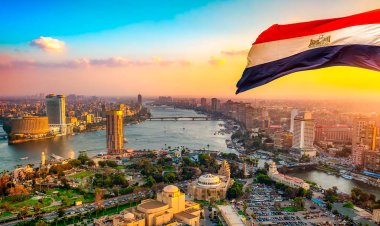Investment amendments to law attracts foreign investment
The relations between Egypt and Turkey witnessed positive developments during the recent period, and during the past month, the two parties agreed to raise their diplomatic relations to the level of ambassadors.

President Abdel Fattah El-Sisi issued Law No. 160 of 2023 with new amendments to the investment law, after the approval of the House of Representatives.
The law aims to enhance the investment climate in Egypt and encourage foreign direct investment, by increasing some of the special incentives granted to investment projects, addressing the mechanism of developing the investment map, and expanding the scope of companies that may be granted one approval to establish, operate and manage the project, which helps to establish larger investment projects.
The law deals with the issue of the exit of hazardous waste from free zones into the country. The draft law also aims to provide an additional investment incentive with special determinants and controls to attract more industries in different regions of the country.

Investment projects
The law stresses that all investment projects, whether established prior to the implementation of the provisions of the Investment Law or at a later date, enjoy the general incentives stipulated in the Investment Law promulgated by Law No. 72 of 2017. It also includes increasing some special incentives granted to investment projects.
The law extends the period during which the new company or establishment must be established to establish the investment project in order for it to enjoy the special incentives stipulated in Article 11 of the aforementioned investment law, until October 29, 2029.
Economic development of the state
The law establishes a new mechanism for drawing up the investment map and the data it contains, and expanding the scope of companies that may be granted the one-approval stipulated in Article 20 of the investment law referred to, to include the permissibility of granting it to existing companies before the date of the provisions coming into force.
It also expands the scope of the projects that companies may be granted this approval for their implementation to include new investment projects to be established to practice any of the investment activities subject to the provisions of the Investment Law in the areas and sectors set forth in the definition of the investment project “contained in Article (1) of the law, and any other sectors in accordance with the plan The economic development of the state.

Projects that may be licensed for their establishment
The law expands the scope of projects that may be licensed under the free zones system to include projects operating in the fields of petroleum manufacturing, fertilizer industries, iron and steel, manufacturing, liquefaction and transportation of natural gas, and energy-intensive industries.
In related context, The Turkish ambassador to Egypt, Salih Mutlu Shen, discussed with his Qatari counterpart, Salem bin Mubarak Al-Shafi, joint investment opportunities for the two countries in Egypt.
The ambassador added that an internal consultative meeting will be held with the participation of Turkish and Qatari investors next October.

The relations between Egypt and Turkey witnessed positive developments during the recent period, and during the past month, the two parties agreed to raise their diplomatic relations to the level of ambassadors.
During the past years, Egypt and Turkey maintained their trade relationship, as the volume of trade exchange between the two countries increased to $7.7 billion in 2022, compared to $6.7 billion in 2021 (an increase of 14 percent), according to official data issued by the Central Agency for Public Mobilization and Statistics in Egypt.


 Shrouq
Shrouq 











